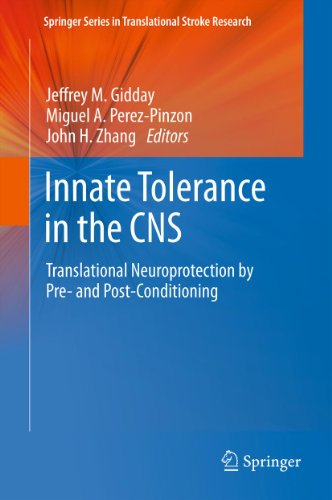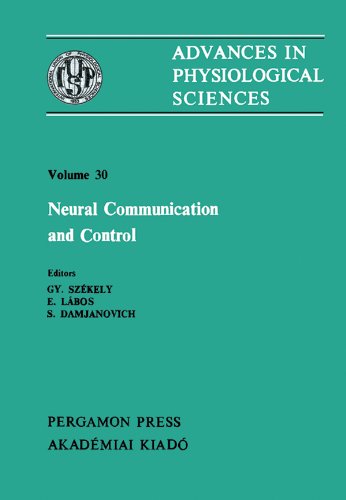
By Jeffrey M. Gidday,Miguel A. Perez-Pinzon,John H. Zhang
Read Online or Download Innate Tolerance in the CNS: Translational Neuroprotection by Pre- and Post-Conditioning (Springer Series in Translational Stroke Research) PDF
Similar zoology books
Advances in Physiological Sciences, quantity 30: Neural communique and regulate is a set of papers offered on the 1980 satellite tv for pc symposium of the twenty eighth foreign Congress of Physiological technology, held in Visegrá Hungary. This quantity consists of 26 chapters and starts with an outline of anxious parts and platforms at the phylogenetic scale.
Tier- und Humanphysiologie: Eine Einführung (German Edition)
Spannende Fragen aus Alltag und gegenwärtiger Forschung sind der Ausgangspunkt für einen Überblick über die Tier- und Humanphysiologie. Die Autoren führen grundlegend in die Physiologie von Mensch und Tier ein. Alle physiologischen Themen werden einführend und verständlich behandelt und didaktisch durchdacht illustriert.
The Physiological Ecology of Tunas
The Physiological Ecology of Tunas records the complaints of the Tuna body structure Workshop held on the nationwide Marine Fisheries carrier Southwest Fisheries heart at los angeles JoDa, California, January 10-15, 1977. The contributions made by means of researchers on the workshop are prepared into seven chapters. the 1st bankruptcy contains reports at the morphological variety and muscle-tissue-specific enzymatic attributes of scombrids.
Animal Electroencephalography makes a speciality of using electroencephalography (EEG) in learning mind electrical task. The manuscript first underscores the physiologic bases of EEG and the features and utilization of electrodes. Discussions specialise in uncomplicated components of nerve mobilephone functionality, common nature of EEG, implantation of intracerebral electrodes, and affixing floor electrodes.
- “Venomous” Bites from Non-Venomous Snakes: A Critical Analysis of Risk and Management of “Colubrid” Snake Bites (Elsevier Insights)
- Salivary Glands and Their Secretions: Proceedings of an International Conference Held at the University of Washington, Seattle, Washington, U.S.A., August 1962
- Neurobiology of Monotremes: Brain Evolution in Our Distant Mammalian Cousins
- Nordic-Iberian Cod Value Chains: Explaining salted fish trade patterns (MARE Publication Series)
- Principios de Fisiologia Animal (Portuguese Edition)
Extra info for Innate Tolerance in the CNS: Translational Neuroprotection by Pre- and Post-Conditioning (Springer Series in Translational Stroke Research)
Sample text



